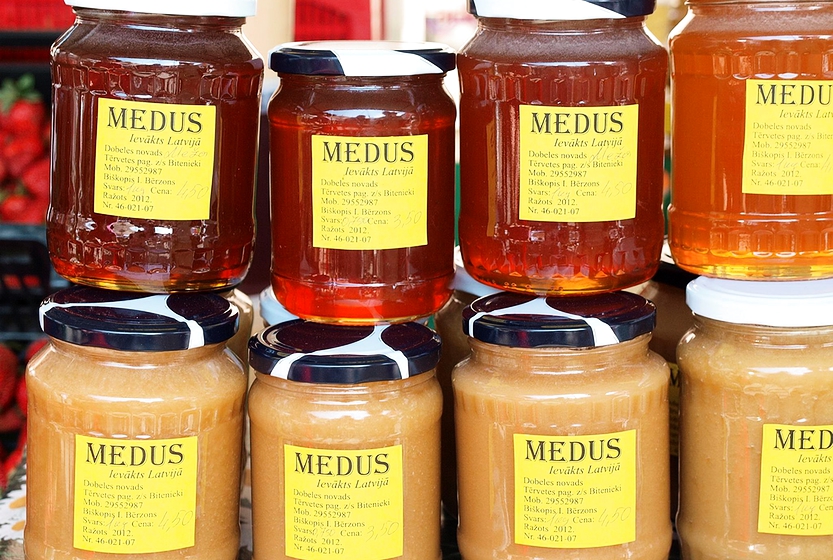The Houston Chronicle reported Sunday that local Chinese-born businessman Jun Yang schemed for years to establish an illicit run of drums full of Chinese honey that transited through Latvia on their way to the US, thus gaining the deliberately misleading label of source.
In January, U.S. Customs and Homeland Security investigators in Houston reported that since October, they had seized an additional 660 drums of honey from China, the world's leading honey producer, that had been smuggled in through Latvia, which barely exports any of its high-quality honey to anywhere else in the world.
Nearly $8 million of Chinese honey has been seized in Houston over the past two years - all of it destroyed or about to be, say investigators.
"For whatever reason, Houston seems to be a focal point for this stuff coming in," said Richard Halverson, assistant special agent in charge of Homeland Security's Houston investigations unit. Federal investigators are already referring to the scandal as ‘Honeygate’, having snared eleven other smugglers in their ongoing probe.
The Houston honey seizures mark a success in keeping fraudulently-arriving goods out of the US market, but many other items are slipping in. The threat of penalties lacks teeth, in part because U.S. Customs and Border Protection often fails to collect antidumping duties or unravel importers' duty-evasion schemes, according to federal court records and government documents.
In an unpublished report to Congress last year, the Department of Homeland Security estimated that $1.83 billion remains uncollected from some 36,000 duty bills issued after imports – worse than in previous years.
Roughly 90 percent of the unpaid duties come from the Chinese imports, including $538 million on garlic; $403 million on wooden bedroom furniture; $395 million on crawfish; $179 million on honey; and $131 million on canned mushrooms, the report said.
The morphing network of global fraudsters and vanishing importers makes the schemes difficult to bust. In 2013, Jun Yang, by then working with authorities, provided information that enabled government agents to stop earlier shipments of Chinese honey routed through Latvia in order to avoid U.S. duties, according to court records.
Latvia seemed to experts to be an unlikely route for the honey. The tiny northern European country produces so little of it that it exported none to other European nations in 2013 and just over 1,000 pounds to the United States, shipping records show.
So red flags were raised when shipping containers from Latvia laden with hundreds of thousands of pounds began arriving at the Port.
"Those are pretty good clues as far as what was going on," said Halverson, whose agents worked with counterparts in Germany to conclude that the honey had started out in China, which seldom ships because of the high duties.
Jun Yang used the criminally-gained profits through his brokerage firm National Honey Inc. to become a prominent Chinese community leader and civic figure with ties to Houston’s previous mayoral administration.
Finally, a planted undercover agent was able to catch Yang in a sting operation, since which he has been cooperating with investigators and providing information to help them keep ‘peeling away the layers’ of the goods-smuggling import tax-scamming network. After the honey in the drums was found to be tainted with antibiotics and deemed unfit for consumption, Yang offered to shred the damning evidence of the laboratory tests and exposed himself to arrest.
Yang and his company, National Honey Inc., used at least four companies to manage the sneaky imports of Chinese honey - imports that would be unfeasible under antidumping duties as high as 221 percent of the honey's value.
The case was prosecuted in U.S. District Court in Chicago as part of a wide-ranging investigation that began in 2008 and resulted initially with charges against executives of a German food conglomerate that based its U.S. honey importing business in Chicago.
Michael Coursey, a lawyer in Washington who has represented U.S. industries, said the Jun Yang prosecution and the honey seizures in Houston "have been helpful in cleaning up a lot of people's behavior. But that doesn't mean the problem is gone."




























